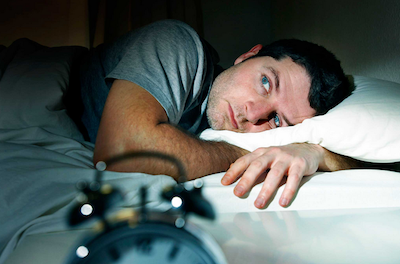Sleep Symptoms and Common Health Conditions
Sleep is a vital component of our lives. Too little sleep or too much of it can have adverse effects or symptoms that relate to our overall health and quality of life. Sleep helps to refresh and recharge the body and mind. However, it can be difficult to sleep if, say you have an injury or if you’re sick. The pain is a problem in itself, but in many cases, the medications we take for pain can lead to a number of sleep symptoms.
If sleep symptoms are ignored and left untreated, they can have an adverse effect on our health. Sleep disorders such as snoring, insomnia, sleep apnea and restless leg syndrome can disrupt sleep and keep us from getting quality rest and sleep that the body needs. Common sleep disorders can have a major impact on the quality of sleep we get each night.
One of the most common sleep disorders is insomnia. This disorder is characterized by sleep symptoms that include the inability to fall asleep or stay asleep, as well as non-restorative sleep. These sleep disorder symptoms may be experience regularly or frequently. Occasional sleepless nights would leave you feeling sleepy during the day, but if you experience long-term sleep deprivation, you become more susceptible to developing a number of serious health problems.
Insomnia is a sleep disorder that is associated with many common health conditions. Insomnia can also be the result of alcohol or drug withdrawal. People who frequently have headaches, use ginseng excessively and have chronic obstructive pulmonary disease also have a hard time falling asleep.
Drowsiness is another one of the sleep symptoms of a number of conditions. People who frequently travel in different time zones may feel drowsy after getting off on a long trip. Diabetics, people with whooping cough, and those with head injuries also tend to experience drowsiness. Feelings of sleepiness was also found to accompany heart attacks.
According to studies, women are more predisposed to having sleep disorders. Studies found that premenstrual syndrome, post partum stress and menopause symptoms can cause sleep disruption. Women who experience such conditions also experience headaches, digestive problems, hot flashes, joint pain, breast pain and night sweats more frequently. All these sleep deprivation symptoms can keep one awake and unable to sleep.
Stress and overwork can exacerbate the above mentioned sleep symptoms. In order to control the symptoms and improve quality of sleep, doctors recommend correcting nutritional deficiencies, regulating blood glucose levels, reducing sodium consumption, and treating any hormone imbalance. Those who prefer not to take sleep medicine can heed the advice of naturopaths: stay away from junk and fatty foods, cut back (or eliminate) tea, coffee and alcohol consumption, ditch the smoking habit, and eat more fruits and vegetables.
Some symptoms can also worsen depression, anxiety, bipolar disorder and other psychological disorders. These patients have low energy and they find it difficult to focus or concentrate. It’s also a struggle for them to think and make decisions. They have fluctuating appetite so they can gain or lose weight quickly. Their need for sleep can also decrease or increase. These psychological disorders are particularly hard to treat because sleep symptoms feed the disorders and vice versa. For treating psychological disorders, most doctors recommend a combination of drugs and therapy. Doctors may also prescribe sleeping pills in addition to anti-anxiety medications and antidepressants to treat both the sleep symptoms and the psychological disorder.
A restless or sleepless night can cause more than just sleepiness during the day. If you have been unable to sleep for an extended period, see a doctor immediately. You may have an underlying medical condition that needs immediate attention. Your doctor may also recommend that you see a sleep specialist so you can be tested and given appropriate treatment. If you want to improve the quality of your sleep and your overall health, don’t ignore the sleep symptoms.

No Comments